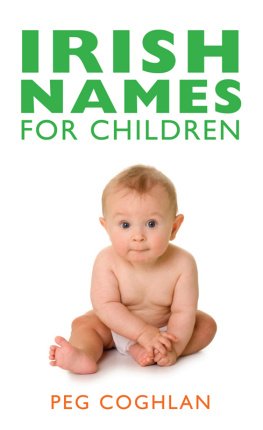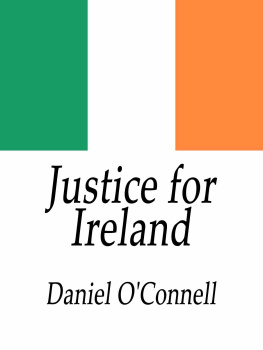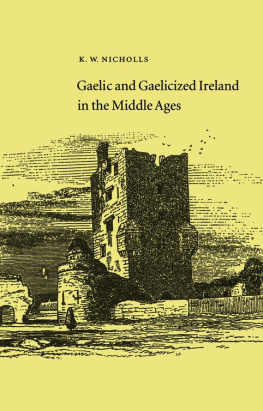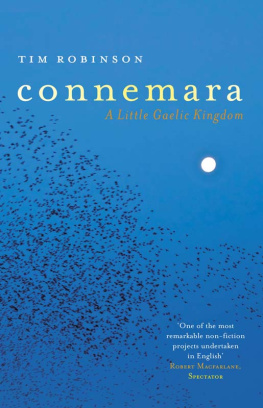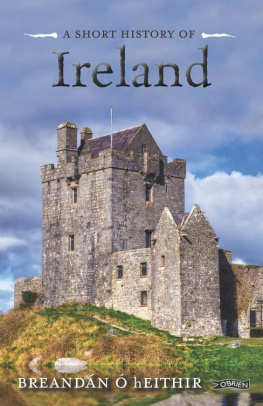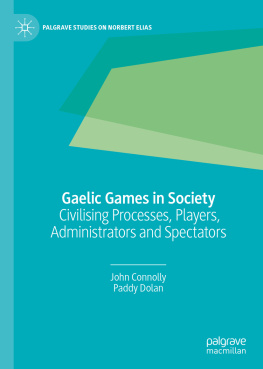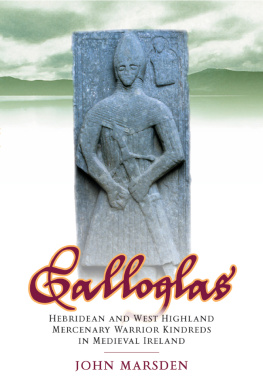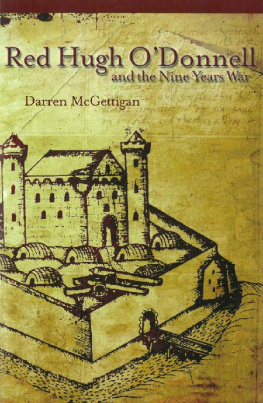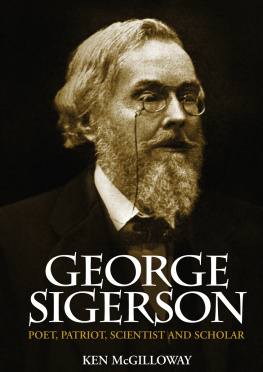Daniel Corkery - The Hidden Ireland – A Study of Gaelic Munster in the Eighteenth Century
Here you can read online Daniel Corkery - The Hidden Ireland – A Study of Gaelic Munster in the Eighteenth Century full text of the book (entire story) in english for free. Download pdf and epub, get meaning, cover and reviews about this ebook. year: 2015, publisher: Gill, genre: Religion. Description of the work, (preface) as well as reviews are available. Best literature library LitArk.com created for fans of good reading and offers a wide selection of genres:
Romance novel
Science fiction
Adventure
Detective
Science
History
Home and family
Prose
Art
Politics
Computer
Non-fiction
Religion
Business
Children
Humor
Choose a favorite category and find really read worthwhile books. Enjoy immersion in the world of imagination, feel the emotions of the characters or learn something new for yourself, make an fascinating discovery.

- Book:The Hidden Ireland – A Study of Gaelic Munster in the Eighteenth Century
- Author:
- Publisher:Gill
- Genre:
- Year:2015
- Rating:4 / 5
- Favourites:Add to favourites
- Your mark:
- 80
- 1
- 2
- 3
- 4
- 5
The Hidden Ireland – A Study of Gaelic Munster in the Eighteenth Century: summary, description and annotation
We offer to read an annotation, description, summary or preface (depends on what the author of the book "The Hidden Ireland – A Study of Gaelic Munster in the Eighteenth Century" wrote himself). If you haven't found the necessary information about the book — write in the comments, we will try to find it.
Daniel Corkery: author's other books
Who wrote The Hidden Ireland – A Study of Gaelic Munster in the Eighteenth Century? Find out the surname, the name of the author of the book and a list of all author's works by series.
The Hidden Ireland – A Study of Gaelic Munster in the Eighteenth Century — read online for free the complete book (whole text) full work
Below is the text of the book, divided by pages. System saving the place of the last page read, allows you to conveniently read the book "The Hidden Ireland – A Study of Gaelic Munster in the Eighteenth Century" online for free, without having to search again every time where you left off. Put a bookmark, and you can go to the page where you finished reading at any time.
Font size:
Interval:
Bookmark:
I
Years before I settled down to this book I was keenly aware of the need for it. At the same time I held back, fearing that I was not the man to write it, that I had neither the scholarship nor the leisure. In the wrestling of those two thoughts was a discomfort that in vain I tried to lay aside with a but but no one else thinks it worth while to write it that is, the book I had already in my minds eye.
Another thought tempted me. The whole movement for the revival of the Irish language, I felt, had been allowed to drift almost entirely under the guidance of grammarians. For the learning of such men, and their care for accuracy, I have the deepest respect. But (O blessed word!) there are too many of them about, I said; they have lost the sense of proportion; and because of this the conditions have become too meticulous, hard, and acrid for that wayward crop, literature, to throw out those promiscuous spurts of growth which are the very routine of youth. This book is a study of some of the Munster Gaelic poets of the eighteenth century. It is perhaps the first serious attempt made to understand them. It cannot be said, however, that those poets for some years past have been neglected; contrariwise they have been studied, almost entirely from the grammarians point of view, though, and not from any other, literary or even human. Not their works have been studied so much as their words; their prepositions and particles rather than their visions! a hard fate to befall a set of men who not only were poets but lyric poets, whose lives moreover, whose whole period indeed, was a living agony. How they must thank me if, even in a blundering way, I throw open their songs to more kindly eyes!
Among the grammarians I do not, of course, include the historians of the literature men like Professor Bergin, Professor ODonoghue, Professor ORahilly, Professor Douglas Hyde, Father Dinneen, Mr Robin Flower and others whose words I quote so often in the following pages. To those I am well content to play the not unnecessary part of vulgarisateur .
All those as well as their students will, of course, find numerous errors after me, if they care to look. There are, however, errors and errors. Lord Morley held history to be an epic art and the propulsive course of epics is not to be hindered by even shoals of errors. And if this opinion be not cover and shield enough for me and my faults I add to it that saying of Goethes: The best that history has to give us is the enthusiasm which it arouses.
II
Such errors as are to be found in this book will not prevent it from lighting up the period it deals with; not only that, but subsequent periods of Irish history will, let us hope, be a little the clearer for it, even that very terrible phase from which we have not yet quite emerged. It will not, in any way, replace Leckys study of the same century; that book it will rather supplement, inasmuch as its province is that side of Irish life, the Gaelic side, which to him and his authorities was dark. He must have thought the Gaelic language a wayside patois , clearly not one of the permanent forces of the nation. In the preface to his History 0f England in the Eighteenth Century , of which book his chapters on Irish history, of course, form part, he explains that his aim was not to write a history year by year or to give a detailed account of battles or of the minor political incidents, but to disengage from the great mass of facts those which relate to the permanent forces of the nation or which indicate some of the more enduring features of national life.
From his own pages one would never feel that the soul of the Gael is one of the more enduring features of our national life. Yet this very fact becomes daily more evident, and all future historians will more and more have to wrestle with it. Far from disengaging for us the urge of that soul he would have us consider as complete an analysis of Irish life in which it is not referred to. The soul of a people is most intimately revealed, perhaps, in their literature; the Gaelic people in that period were possessed of much literature, were, moreover, constantly adding to it, for they had many poets; yet of this literature, of these poets, Lecky knew nothing.
He enlightens us on the attitude of those historians among whom he wished to stand: What characterises these writers is that they try to look at history, not as a series of biographies, or accidents, or pictures, but as a great organic whole; that they consider the social and intellectual condition of the world at any given period a problem to be explained, the net result of innumerable influences which it is the business of the historian to trace.
To the social condition of both the Gaelic people and the Ascendancy he gave close study; to the intellectual movements among the Ascendancy he gave the same earnest thought; but at similar movements among the Gael, also, just as surely, the net result of innumerable influences, he gave not even one single glance! The inference is that there were none, or that, being there, they were not matter for such historians as he. In his biography it is written: Survivals of the old national life in a country always interested him particularly, and in Holland he had exceptional opportunities of seeing these. But the survivals of national life among the Gaels made no appeal to him. He wrote: To destroy the prestige and position of Trinity College would be to drive the ablest Irishmen more and more to the English Universities, and thus more and more to denationalise the talent of Ireland. He had but little idea how denationalised his own mind was; he could describe himself quite seriously as the latest successor of the Four Masters!
Nevertheless, his book is a noble work, packed with knowledge. What it lacks, however, was the very life of the building. If his account of Ireland were the whole truth, the subsequent history of Ireland must have been very different from what it actually has been. That subsequent history is a rough story of a national ideal grimly pursued; it is perhaps the best illustration in the worlds history of how strong and indeed terrible a force nationalism comes slowly to be when tempered in the fires of adversity and smithied in the forge of persecution. Mr Stopford Brooke some years ago took the mass of poetry written by Irishmen in the English tongue. He searched it for its distinctive elements. In the end he marked out three Nationality, Religion, and what England calls Rebellion.
Nationality, Religion, Rebellion! Now, if this be the finding of a competent critic with regard to that poetry, practically all of which was written in the nineteenth century, what would we say of a historian of that century who had never given a thought to that mass of literature or its writers? If his work gave one to understand that none such existed, that consequently the desire that would crave such utterance either did not exist, or else, so weakly as not to find expression for itself surely it would not be too severe a condemnation of such a work to say that whatever of good it held in it, the life of the building was not in it? Now, one goes only a little way into the Irish poetry of the eighteenth century when one comes on the same three notes, the same, yet how vastly different! How much deeper, louder, stronger, fiercer!
Lecky, however, telling his tale of that century, omits all reference to this body of literature, almost all of which may be spoken of as explicitly or implicitly historical.
It is when his shortcomings are known that his book becomes of great value; for one turns to it then for what it contains, for information on the material conditions of the country or for the story of the Dublin Parliament, that noisy side-show, so bizarre in its lineaments and s0 tragi-comic in its fate, to which he gave such attention. His account of the life of the country as a whole needs many supplementary books, not one. Some indeed have already appeared; and this book aims at being simply one other.
Font size:
Interval:
Bookmark:
Similar books «The Hidden Ireland – A Study of Gaelic Munster in the Eighteenth Century»
Look at similar books to The Hidden Ireland – A Study of Gaelic Munster in the Eighteenth Century. We have selected literature similar in name and meaning in the hope of providing readers with more options to find new, interesting, not yet read works.
Discussion, reviews of the book The Hidden Ireland – A Study of Gaelic Munster in the Eighteenth Century and just readers' own opinions. Leave your comments, write what you think about the work, its meaning or the main characters. Specify what exactly you liked and what you didn't like, and why you think so.

